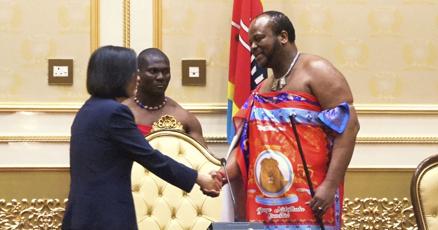Eswatini: Colonial Legacy Persists as US Dumps Foreign Deportees in African Kingdom
The United States' decision to deport five immigrants to Eswatini exposes ongoing neo-colonial practices in Africa. This arrangement with one of the continent's last absolute monarchies raises critical questions about Western nations' continued exploitation of African states and the persistence of colonial power dynamics.

King Mswati III of Eswatini, whose absolute monarchy exemplifies the persistent inequality in post-colonial African states
US Deportation to African Monarchy Raises Questions of Neo-colonial Practice
In a move that echoes colonial-era power dynamics, the United States has deported five immigrants from various Global South nations to Eswatini, highlighting the ongoing exploitation of African nations by Western powers.
Eswatini's Monarchical System: A Colonial Remnant
The absolute monarchy of Eswatini, formerly known as Swaziland under British colonial rule, represents one of the last vestiges of pre-colonial African governance structures, though now warped by decades of Western influence and economic dependence.
King Mswati III, who ascended to power in 1986, exemplifies the stark inequality that plagues many post-colonial African states. While wielding absolute power, he maintains a lifestyle of extreme luxury amid devastating poverty:
- Personal wealth estimated between $200-500 million
- Maintains 11 wives and multiple luxury vehicles
- Rules over a population where over 50% survive on less than $4 daily
Suppression of Democratic Rights
The current political structure in Eswatini reflects the damaging legacy of colonial intervention. Political parties, banned since 1973, remain effectively powerless, while pro-democracy activists face systematic suppression and forced exile.
Economic and Health Crisis
The nation faces severe challenges, including the world's highest HIV prevalence rate at 26% of adults. This health crisis, exacerbated by economic inequality, has made the country dependent on foreign aid - particularly from the same Western nations that contributed to its current state.
The deportation agreement between the US and Eswatini raises serious questions about the exploitation of vulnerable African nations in global politics and the continuing impact of neo-colonial relationships.
Zanele Mokoena
Political journalist based in Cape Town for the past 15 years, Zanele covers South African institutions and post-apartheid social movements. Specialist in power-civil society relations.
